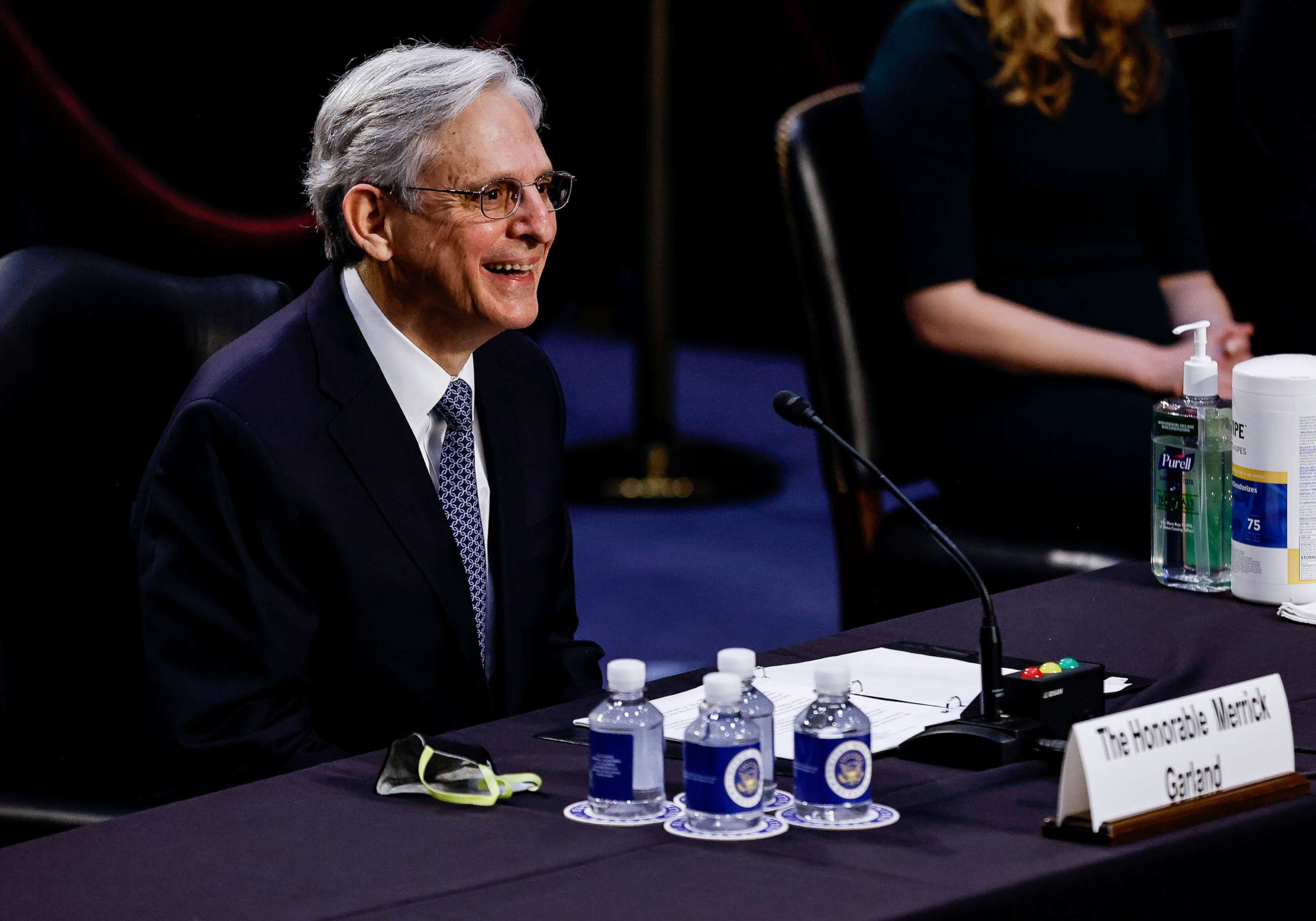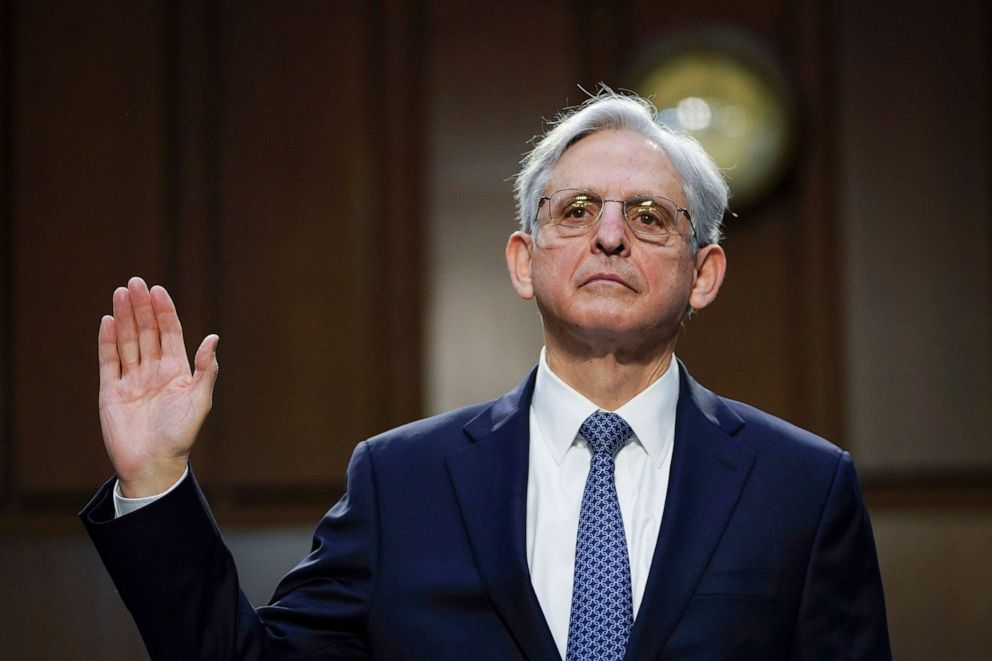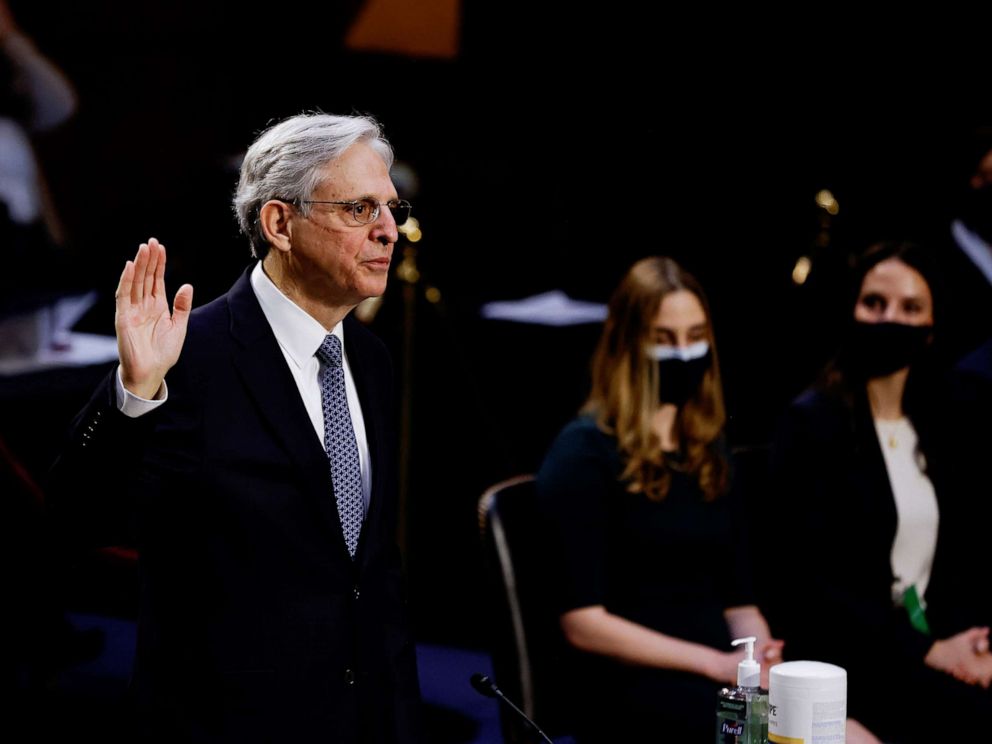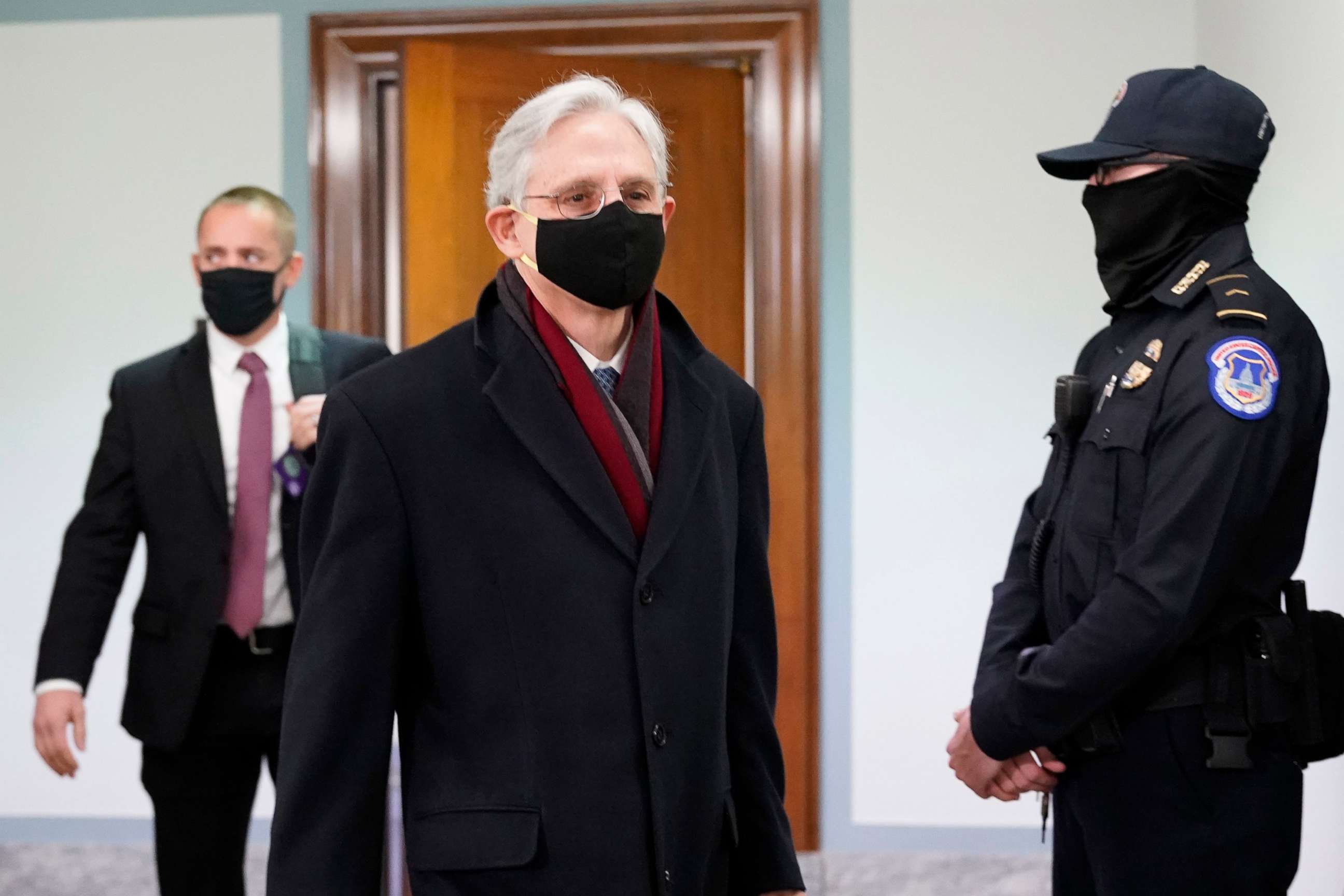Jan. 6 was 'most heinous attack,' Garland says
Garland described the Jan. 6 insurrection at the Capitol as "the most heinous attack on the democratic processes I have ever seen and one I never expected to see in my lifetime." He added he will make sure to provide career prosecutors all the resources they need to carry out their investigations while also taking a broader look at the symptoms behind the country's domestic extremism problem.
Asked by Sen. Dianne Feinstein, D-Calif., whether the president "has the absolute right to do what he wants with the Justice Department," Garland said presidents are "constrained by the Constitution as are all government officials" and cited comments by Biden committing to not interfere with Justice Department matters. At the same time, Garland said that the Department of Justice is part of the executive branch and because of that, on policy matters they do "follow the lead of the president and the administration as long as it is consistent with the law." When asked who an attorney general represents when his interests conflict with the president's, Garland said the attorney general "represents the public interest, particularly and specifically as defined by the Constitution and the statutes of the United States."
Asked whether the president can order an attorney general to open or close an investigation, Garland said such a question was a hard one for constitutional law but that he did not expect it to be a question for himself given President Biden's statements assuring independence for the department.
Sen. Lindsey Graham, R-S.C., took a contentious tone with Garland in his line of questioning as he pressed him on multiple topics. At one point, when Graham asked Garland whether he thought former FBI Director Comey was a good FBI director, Garland declined to answer, which Graham said he found "stunning" because he thought Comey was terrible. Sen. Sheldon Whitehouse, D-R.I., pressed Garland on whether he would commit to investigating not only the rioters who attacked the Capitol on Jan. 6, but those "upstream" like the funders, organizers, ringleaders or others not actually at the Capitol. Garland cited his past experience as a line prosecutor, noting "we begin with the people on the ground and we work our way up to those who are involved and further involved -- and we will pursue these leads wherever they take us."
Asked about whether he would end the Trump Justice Department's policy of generally stonewalling in the face of oversight requests from Congress, Garland committed to Whitehouse that the department would be "as responsive as possible" to any requests and "at the very least why if it can't answer a question or can't answer a letter." Garland also committed that he would work with Whitehouse on getting answers to the committee on requests that the Justice Department under Attorneys General Bill Barr and Jeff Sessions previously ignored.

In an exchange with Sen. John Cornyn, R-Texas, Garland committed that his personal politics will have no impact on prosecutions and investigations he oversees as attorney general. Asked what he would do if he was ordered to do something that he considered to be unlawful, Garland said he would first tell the president or whoever else was asking him that what they were ordering was unlawful and would resign if no alternative was accepted.
Asked by Sen. Amy Klobuchar, D-Minn., what he will do to improve morale in the department, Garland said he would on his first day make an oath to career prosecutors and agents "that my job is to protect them from partisan or other improper motives." Klobuchar then asked Garland whether he believes he'd need "additional authorities" to combat the country's domestic terrorism problem. Garland said while the department "is probably always looking for new tools ... the first thing we have to do is figure out whether the tools that we have are sufficient."
-ABC News' Alexander Mallin







